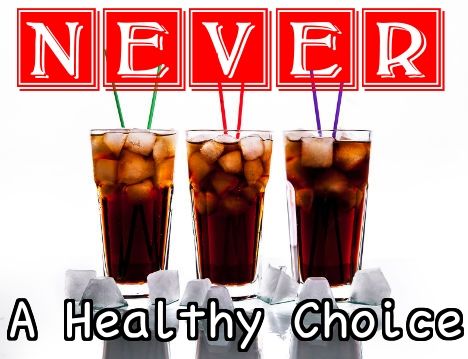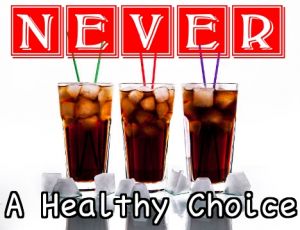
It seems the Coca-Cola company has stooped to a new low. Most of us know quite clearly by now that soda is a serious hazard to our health. Links to the obesity epidemic, the rise of type 2 diabetes, certain cancers, and system-wide inflammation are just a few of the many reasons to stay away from the stuff.
However, according to a number of reports, Coca-Cola has been paying some health and fitness experts to not only downplay the evils of soda, but to actually promote it in smaller portion sizes! This simply could not be more backwards, or more disheartening.
Pro-soda posts by certain health bloggers reportedly started popping up last February, which, quite ironically, is American Heart Month. One might think this would be the month when health experts nationwide fill cyberspace with heart-healthy diet and lifestyle suggestions… not promote a sugary beverage linked to raising the risk of heart disease.
The strategy of these posts funded by Coca-Cola was to suggest sodas as “treats,” and make them seem okay in smaller portions. The Miami Herald reported on a post suggesting mini-cans of Coca-Cola as a “refreshing beverage option,” and another praising the mini-can as “guilt-free.” The glaring problem with this is not the size of the can—it’s the stuff in it that’s killing us.
 The truly sad thing is that many people scanning these blog posts and articles do not look at the fine print (which is required to designate the post as a sponsored ad): they see that a health, nutrition, or fitness expert has written it, and automatically give that author more credit, even if the idea seems ludicrous. Reportedly, such posts ran on over 1,000 websites.
The truly sad thing is that many people scanning these blog posts and articles do not look at the fine print (which is required to designate the post as a sponsored ad): they see that a health, nutrition, or fitness expert has written it, and automatically give that author more credit, even if the idea seems ludicrous. Reportedly, such posts ran on over 1,000 websites.
In response to the criticism following this move, the Coca-Cola company stated that it’s wish is to “help people make decisions that are right for them.” It also stated that the experts they employ “help to bring context to the latest facts and science around our products and ingredients.”
Ben Sheidler, a spokesperson for Coca-Cola, said on the matter: “We have a network of dietitians we work with. Every big brand works with bloggers or has paid talent.”
The Huffington Post reported specifically on two of these bloggers: Robyn Flipse and Sylvia Melendez-Klinger, both of whom are dieticians. When interviewed, both dieticians maintained that they were expressing their own views. Flipse admitted to being paid, and Melendez-Klinger reportedly stated that she “didn’t remember” if she was paid or not.
Of course, hiding under the guise of health is nothing new for processed food and beverage companies. Case in point: the FDA’s use of the word “healthy” on snack bar labels that are anything but. However, just because it’s common practice doesn’t make it right.
Shame on you, Coca-Cola. Our nation’s health is worth more than your profit margins.
-The Alternative Daily
Sources:
http://www.huffingtonpost.com/2015/03/16/coke-a-healthy-snack-how_n_6875706.html
http://www.hngn.com/articles/77460/20150316/coca-cola-soda-healthy-snack-dietitians-nutrition-consultants-saying-yes.htm
http://www.naturalnews.com/049387_junk_food_coca-cola_dietitians.html
http://www.thealternativedaily.com/soda-vs-diet-soda-is-there-a-lesser-evil
http://www.thealternativedaily.com/the-fdas-complete-misinterpretation-of-a-healthy-ingredient-the-kind-bar-fiasco

